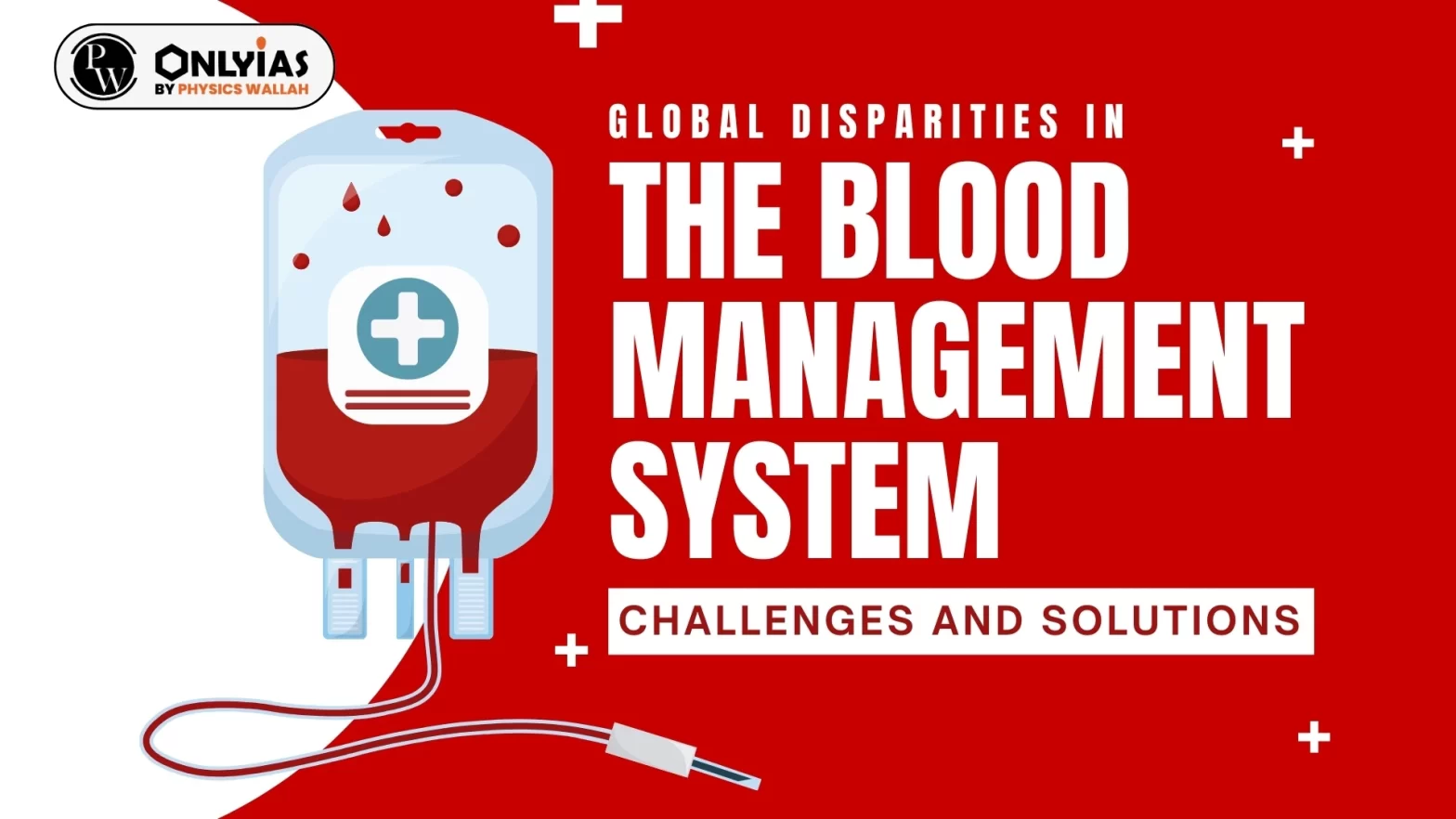Context: This editorial is based on the news “The blood management system needs a fresh infusion” which was published in the Hindu. A recent report by the World Health Organization (WHO) has brought attention to the global disparities in blood management system.
Significance of Blood
- Blood and its various products play a crucial role in a number of medical scenarios, which includes scheduled surgeries, emergency procedures, as well as in the treatment of conditions such as cancer, thalassemia, and postpartum haemorrhage (PPH).
Challenges of the Blood Management System
- Global Disparities in Blood Management System: Despite having 14% of the global population, countries in the WHO African region could only collect 5% of the global donations.
- Comparable patterns emerged in low-income and lower-middle-income nations, where these countries received 2% and 24% of the worldwide contributions, even though their populations account for only 8% and 40% of the global population, respectively.
- Shortage of Blood in India: India has improved its blood management ecosystem, but still faces a perennial shortage of blood units, impacting critical health-care services.
- As per WHO’s standards for self-sufficiency, India collected around 1.27 crore blood units and faced a shortage of over six lakh units in 2019-20.
- Such shortages have serious implications on the functioning of the health-care system and if addressed promptly, can significantly contribute to saving lives.
- Myths & Misinformation for voluntary Blood Donation: Many people have myths of the fear of infections and damage of immunity and these misconceptions can be dispelled through targeted awareness initiatives.
Why Do We Need a Blood Management System?
- Raise & Spread Awareness: The private sector can work closely with the government to launch dedicated awareness campaigns aimed at the grassroots.
- Such campaigns can leverage the power of social media and deploy innovative tools to reiterate the need and benefits of regular and voluntary blood donation.
- Action by Policymakers across the World: Need to improve the global health architecture as a tool to catalyze economic growth and secure the future of the planet.
- Reducing the Disparity & Strengthening the Global Health Architecture: Greater health financing through international collaborations, deepening the adoption of digital health solutions, and increasing access to medical countermeasures.
- A Resilient Global Health Architecture: Need to prioritize access to blood and its products.
- Collaboration between Leading Industry Players: It holds immense potential in introducing innovative models, effectively addressing numerous existing challenges.
- Hub & Spoke Model: Inequities in access to safe and sustainable blood can be mitigated through the establishment of robust public-private partnerships (PPP).
- The hub and spoke is an innovative model where high-volume blood banks act as a hub for smaller blood centres and can address critical gaps in blood availability and distribution, thereby enhancing accessibility and availability of blood and its products.
Conclusion
With the experience of COVID-19 pandemic, the World needs for the global developmental road map for an equitable and sustainable future and the health paradigm must be prepared accordingly. Political leaders and the policymakers must continue to take steps to strengthen the blood management system. Simultaneously, proactive engagement from industry and active participation of the citizens are desirable.
Must Read: Global TB Report 2023 By World Health Organization (WHO)
| Prelims Question (2022)
Which one of the following statements best describes the role of B cells and T cells in the human body?
(a) They protect the body from environmental allergens.
(b) They alleviate the body’s pain and inflammation.
(c) They act as immunosuppressants in the body.
(d) They protect the body from the diseases caused by pathogens.
Ans: (d) |
![]() 4 Jan 2024
4 Jan 2024
